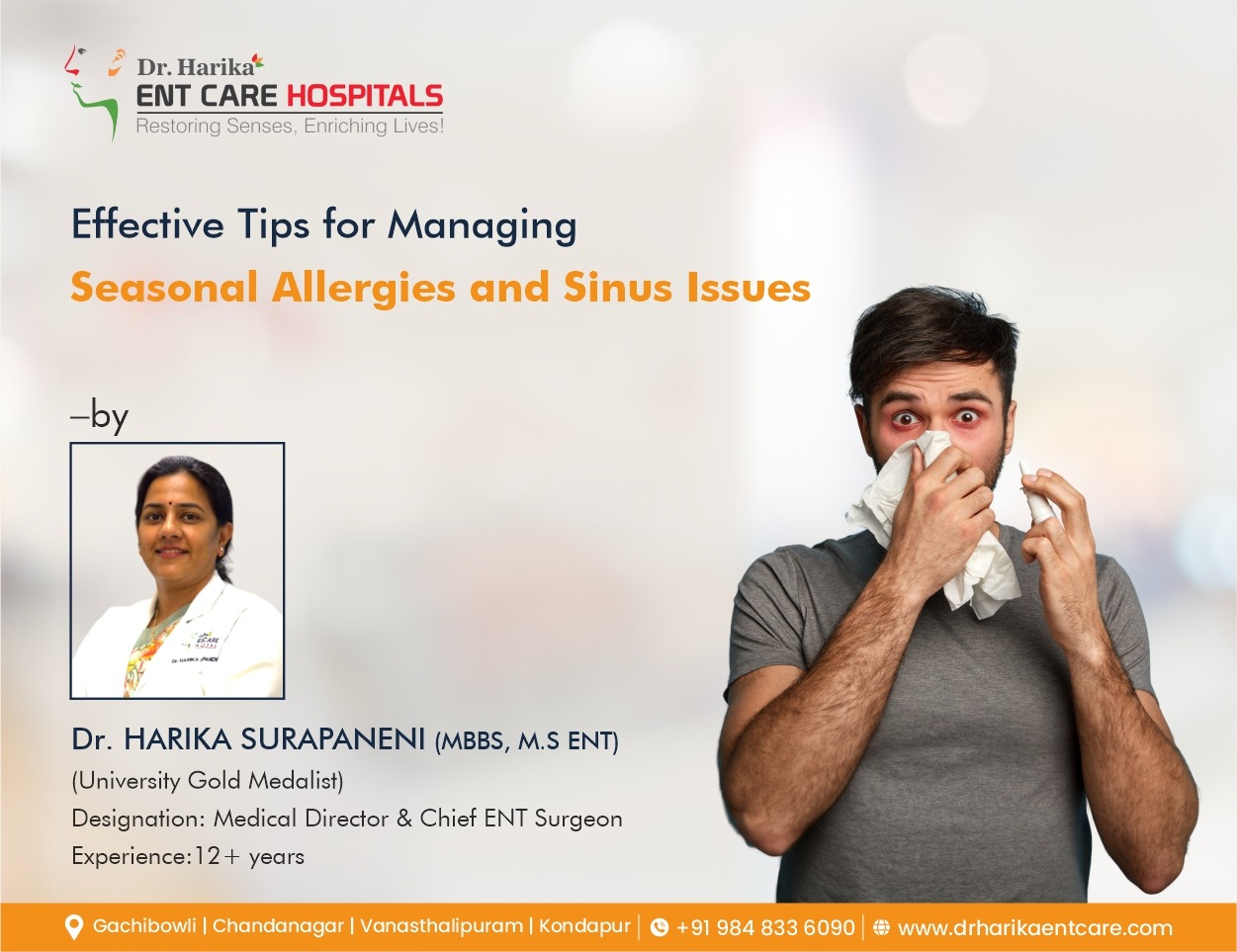Effective Tips for Managing Seasonal Allergies and Sinus Issues – Seasonal allergies can make daily life uncomfortable with symptoms like nasal congestion, sneezing, itchy eyes, and sinus pressure. While these reactions are common, proper management can significantly improve your quality of life. Here’s a guide to understanding allergy triggers and practical ways to find relief.

Common Allergy Triggers
Allergic reactions occur when the immune system overreacts to harmless substances, considering them threats. Some of the most common triggers include:
-
Pollen – Released by trees, grasses, and weeds, pollen is a leading cause of seasonal allergies.
-
Dust Mites – Microscopic creatures found in household dust, bedding, and upholstery.
-
Mold – Mold spores thrive in damp environments and can cause allergic reactions year-round.
- Pet Dander – Tiny skin flakes shed by cats, dogs, and other animals can trigger allergy symptoms.
Tips for Allergy Relief
Managing seasonal allergies involves a combination of prevention and treatment. Here are some expert-recommended strategies to minimize symptoms:
-
Limit Exposure to Allergens
Keep windows and doors closed during high pollen seasons.
Use air purifiers and HEPA filters to reduce indoor allergens.
Shower and change clothes after spending time outdoors to remove pollen.
-
Nasal and Respiratory Care
Rinse nasal passages with a saline solution to clear out allergens and relieve congestion.
Use a humidifier to maintain optimal indoor air moisture and prevent nasal dryness.
- Medication and Treatment Options
Take antihistamines or decongestants as recommended by your doctor to control symptoms.
Corticosteroid nasal sprays can help reduce inflammation and congestion.
Consider allergy shots (immunotherapy) for long-term relief if symptoms persist.
-
Support Your Immune System
Stay well-hydrated to thin mucus and relieve sinus pressure.
Maintain a healthy diet rich in antioxidants and vitamin C to help your body fight allergens.
When to See an ENT Specialist
If your allergy symptoms persist despite home remedies, or if they lead to complications like chronic sinusitis, difficulty breathing, or frequent sinus infections, it’s time to consult an ENT specialist. Advanced treatments may include:
-
Prescription-strength nasal sprays or antihistamines
-
Allergy testing and immunotherapy (allergy shots)
-
Minimally invasive sinus procedures for long-term relief
